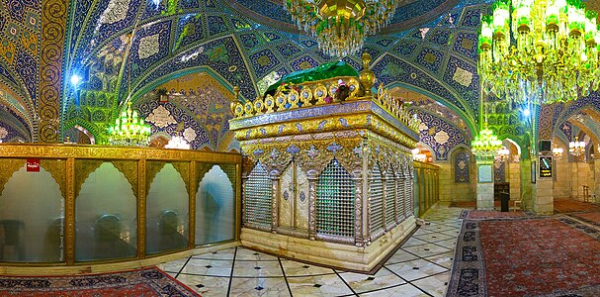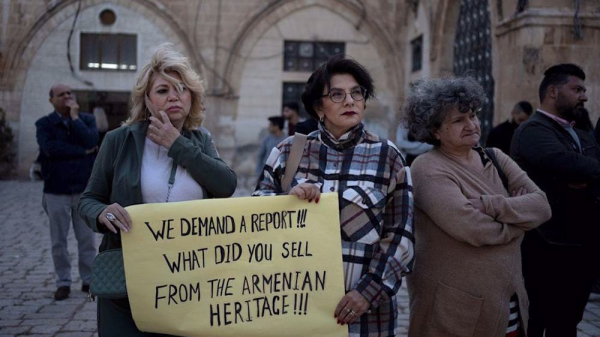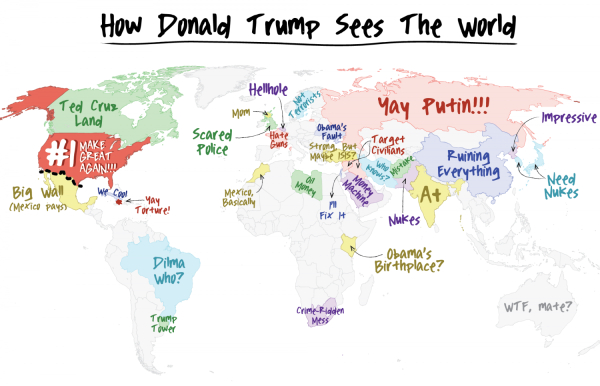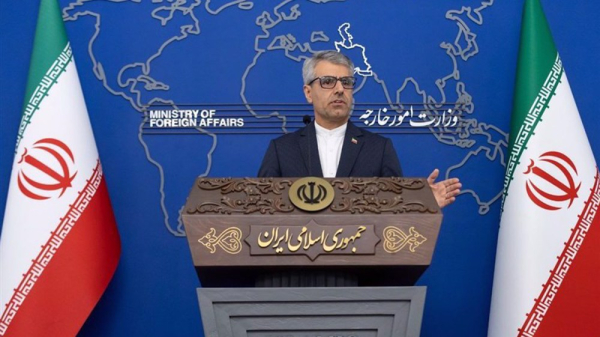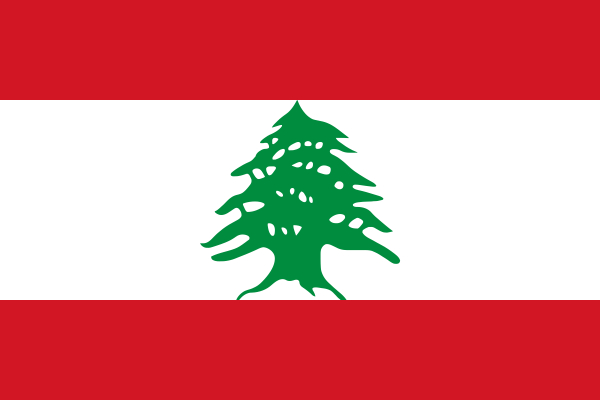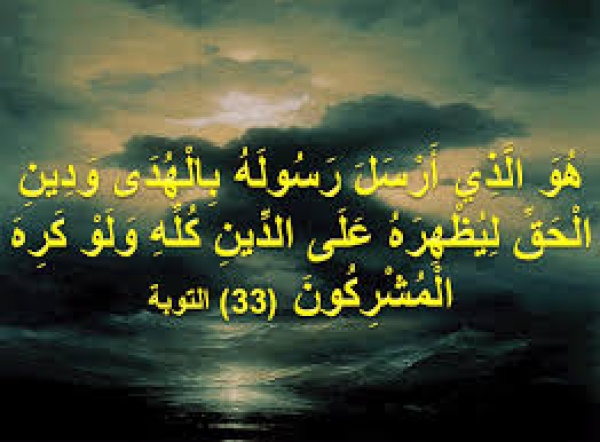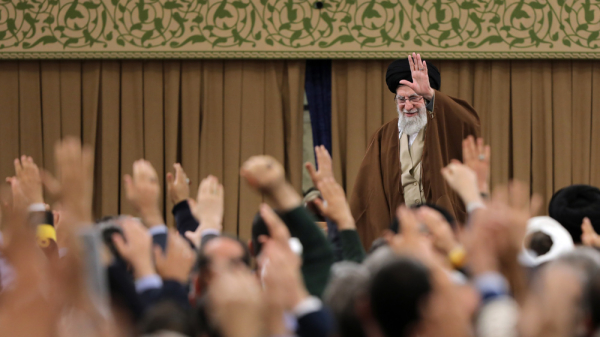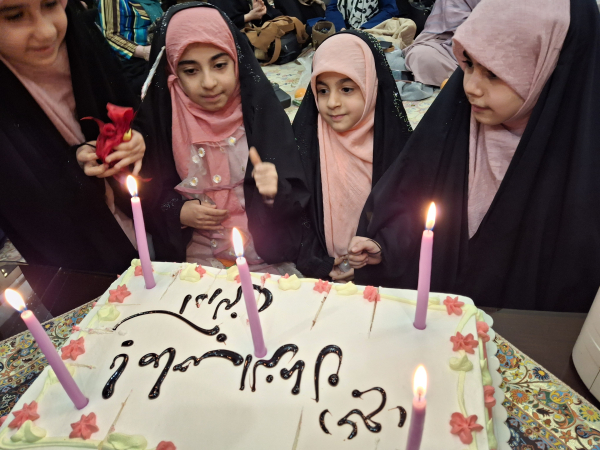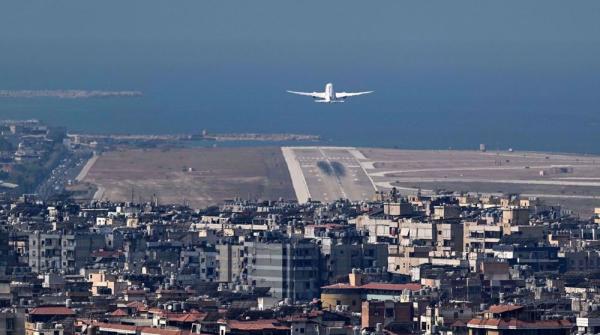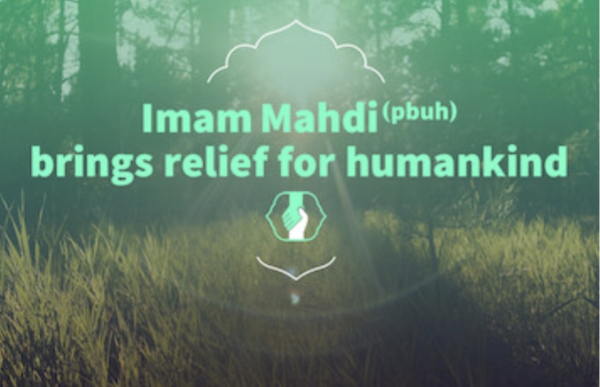zarezadeh
The Holy Shrine of Hazrat Ruqayyah (peace be upon her)
One of the pilgrimage sites that is of interest to Islamic sects, especially Shiites, after the grave of Hazrat Zainab (peace be upon her) in Syria, is the grave and shrine of "Ruqayyah" (peace be upon her), the infallible daughter and the youngest child of Imam Hussein (peace be upon him).
Hazrat Ruqayyah is the daughter of Imam Hussein (peace be upon him), the son of Ali ibn Abi Talib (peace be upon him).
It has been reported from sources that Imam Hussein (peace be upon him) had six sons and three daughters. His daughters were: "Sakina" (daughter of Rabab, daughter of Amr al-Qays and sister of Ali Akbar), "Fatima" (daughter of Umm Ishaq, daughter of Talha ibn Ubaydullah) and "Zainab" (who was also Fatima's sister and both were from the same mother).
In most sources, the names of these three daughters are mentioned and Ruqayyah is rarely mentioned. Most likely, Ruqayyah was another name for Zaynab, and since Zaynab, unlike Fatima and Sakina, is not reported to have played an effective and active role in Karbala, it seems that she was no more than a child who must have been born in Medina in 57 AH.
In any case, along with the rest of the Ahl al-Bayt, Imam Hussain (a.s.) and Zaynab al-Kubra (a.s.) were captured and settled in a place next to the "Bab al-Faradis" - which was in ruins at that time. Ruqayyah was four years old at that time and made himself her father, and Yazid, cursed by Allah, ordered that her father's blessed head be brought to him. When Ruqayyah saw that bloody head, she died of great grief and sorrow after a few days.
The grave of Hazrat Ruqayyah is in the city of Damascus.
Existential threat': Israel to seize, auction Armenian properties in al-Quds
The Armenian National Committee of America (ANCA) says the centuries-old community of Armenian Christians in the Old City of al-Quds is facing an existential threat as the Israeli regime attempts to forcibly expropriate their properties.
Anca made the remarks in a post on X on Wednesday, saying “Israel is set to tax, seize and auction off properties that have been owned for centuries" by Armenian Christian Patriarchate in al-Quds.
“This illegal action represents a direct threat to the survival of the 1,700+ year old Armenian Christian Quarter and all the diverse faith-based communities" of the holy city, it added.
The Armenian Patriarchate in al-Quds has issued an urgent statement, calling on Israeli authorities to intervene immediately to prevent the foreclosure process on its properties and protect the Christian presence in the city.
The Patriarchate is now facing a legal dispute over an alleged municipal tax debt from 1994. It argues that the debt was imposed arbitrarily by a municipal official without proper legal proceedings.
Despite multiple petitions, the municipality in al-Quds has ignored due process and refused to review the validity of the claim.
If the foreclosure moves forward, it could set a dangerous precedent, potentially threatening other Christian religious institutions in the occupied territories.
The move is also seen as unjust, given that the municipality itself owes the Patriarchate millions in unpaid rent.
The issue was initially meant to be resolved through a committee established under Israeli prime minister Benjamin Netanyahu in 2018, but the municipality has proceeded unilaterally.
The Patriarchate is located in the Old City of al-Quds in the Armenian Quarter which comprises one-sixth of the old city and occupies the entire southwest corner of the town.
Members of the small minority community of Armenians in al-Quds say they are fearful about their future in the holy city, as Israeli settlers continue to vandalize cemeteries and places of worship, with the support of the occupying regime.
Since the most right-wing Israeli cabinet came to power in 2022, incidents against Christians in al-Quds have reportedly become more violent and common. At the beginning of 2023, 30 Christian graves at the Protestant Mount Zion Cemetery were desecrated.
In the Armenian Quarter, vandals spray-painted “Death to Arabs, Christians and Armenians,” on the walls.
Victims of these incidents say the Israeli police do little to arrest and punish the attackers most of the time.
Press TV’s website
Formation of Trump's foreign policy
Trump's victory in the US presidential election surprised and confused politicians, analysts, and governments around the world. The internal developments in the US have a great impact on other countries due to its position in the international system. Trump's lack of political and governmental experience and his unexpected victory have surprised analysts. Now the fundamental question is what will Trump's foreign policy be like? To answer this question, four categories of effective components in the formation of US foreign policy towards the Islamic Republic of Iran have been proposed and can be examined according to the characteristics of this period.
Trump's personal characteristics and intellectual and social origins
The structure of the US political system
The international system and systemic components
Iran's strategic environment; existing issues and interests
These components will shape the Trump administration's foreign policy towards the region and the Islamic Republic of Iran. In this framework and approach, it is possible to assess the goals and vital interests of countries, their limitations and obstacles, the achievements and costs of each government.
Trump's lack of political and executive experience has led to widespread ambiguity about his government's foreign policy. Trump is an investor in the housing and hotel sectors, has become famous for hosting several successful television shows; Schumann is considered a capable person who, in the eyes of his supporters, is successful in whatever he does. Authoritarian, misogynistic, and opposed to Muslim, African, and Latino immigrants are other personality traits. Based on such characteristics, its supporters are more likely to be in marginalized communities than in the mainstream of American society, those who are less educated than the average American and have been affected by economic globalization and immigration to the United States. Trump views politics through the lens of business, and based on this view, he strongly opposed the JCPOA during Iran's negotiations with Airbus to buy aircraft, claiming that the US gave the Iranians $150 billion and they would buy from Airbus instead of Boeing. His serious criticism of America's historic allies around the world is that they do not pay for their own security.
The American political system is based on the fundamental principle of "checks and balances." This principle governs between the branches of power at different levels and in different areas; between the three branches of government, between the federal government and the states, between the ruling and rival parties, between official and unofficial power. The selection of high-ranking government officials is by the president and with the approval of Congress. The rival party, the media, and public opinion monitor the policies and behavior of the government and discuss and examine them. The American bureaucratic system, while being the platform and agent for implementing the policies and decrees of the American president, also imposes many restrictions on it. Currently, Republicans practically control Congress, the White House, and the Supreme Court of the United States, which is unprecedented in American history. The unity of the official institutions of power allows Trump to advance his policies with minimal obstacles. Of course, Trump will face many challenges within the Republican Party and Congress because he was in conflict with the official structure during the election campaign. The official power structure in the United States is still not convinced of Trump’s personal approach and policies and is not aligned with them. The combination of personal characteristics and structural constraints and opportunities can create a situation in which political and security officials present in the Trump administration have more maneuvering power to determine and implement policies. Trump’s unfamiliarity with foreign policy and security issues provides a wide field for the foreign and defense ministers to act with greater authority on various issues. The presence of radical neoconservatives from the Bush era around Trump is not a favorable and appropriate sign for the Islamic Republic of Iran. Of the five possible candidates for the Secretary of State, there is very little who does not have an extremely hostile view of the Islamic Republic of Iran.
The international system and systemic factors are one of the effective components in the formation of the Trump administration’s foreign policy. As neorealists propose, the international system plays a major role in shaping the behavior of states in the international arena. The United States is the most influential power in the international system. US military spending accounts for more than 40% of the world's total military spending, it accounts for 22% of global GDP. It pays 25% of the annual costs of the United Nations. The United States has been the engine of globalization so far. More than 50% of the world's top 100 multinational corporations belong to the United States. Trump's rhetoric and priorities are practically against the mainstream of globalization and regionalism. Trump is seeking to cancel US free trade agreements with the European Union, East Asia, and even with Canada and Mexico. Protectionism is Trump's current approach. But how much this attitude can actually become US foreign policy is a matter of serious doubt. After entering the White House, Trump will face precise realities and will hear many "no"s from foreign parties. His statements during the election campaign have been more fanciful than rooted in the ground, and he has had ample opportunity to adjust his opinions and views.
There are many components in the strategic environment of the Islamic Republic of Iran that are effective in shaping Trump's foreign policy. The Middle East is a swamp of idealistic policies and imaginary rulers. The realities of this region are much harsher than for the new US rulers to design their foreign policy without paying attention to them and to regulate and secure their goals and interests without considering the vital interests of other governments and actors. The patterns of friendship and enmity in the Middle East are very complex. Confronting an enemy may lead to weakening a friend and ally, and supporting a friend may lead to strengthening the forces of the enemy. In such an environment, linear behavior cannot secure America's national interests. In Syria, Trump's cooperation and coordination with Russia cannot be accompanied by this country's hostility towards the Islamic Republic of Iran. The war against ISIS cannot proceed without considering Iran and the Kurds, Iraq and Syria. Close relations with Turkey conflict with support for the Kurds. Regional and extra-regional actors, governmental and non-governmental, their friendship and enmity have created a complex situation in the region, and it is still not possible to present a relatively acceptable picture of the Trump administration based on Trump’s words and statements. Its general propositions can be as follows: Saudi Arabia and Israel are counting down the minutes for the end of the Obama era. In their opinion, Trump is better than Obama in any case, although they had invested in Clinton. The US military presence and intervention in the region will be greater than during the Obama era. US arms sales to countries in the region will increase. Saudi and Israeli relations with the US will improve, but they will not be without challenges. The Jasta law will affect Riyadh-Washington relations. The destruction of ISIS has been declared the main goal of the US, but there are serious doubts about the practical fight against it by the US.
The Islamic Republic of Iran was one of the issues and topics raised in the US presidential election campaign, and Trump had taken a hostile stance against Iran during this time, but the serious question is how much of his rhetoric during the election period can be realized in practice and after entering the White House and being in the driving force of action, and how much will it change? Trump is facing many structural issues and problems within the US and its relations with regional and Western allies, and their impact on Trump's foreign policy will be very serious, but apart from that, what is important for the Islamic Republic is understanding the new conditions and developments that have occurred in the US. A period of transition and ambiguity and confusion has begun in US foreign policy. The extremist, inexperienced, and violent group in the US is in the driving force of decision-making and action. In such a situation, the condition of prudence is caution in verbal and practical action. The Islamic Republic of Iran should not expose itself to the attack of the neoconservative group around Trump. They will try to increase the pressure on the Islamic Republic by using the JCPOA, Iran’s missile program, imprisoned American citizens in Tehran, Iran’s regional policy, and human rights as an excuse, reproduce Iranophobia, and implement securitization in order to reach a consensus again on action against Iran in Washington, the international community, and regional countries. After the transition period in the White House, the strategic decision-making phase between Iran and the United States will begin, and it seems that the United States must choose between understanding and confrontation. The Islamic Republic of Iran does not seek confrontation, but rather resolving regional issues and problems and focusing on combating terrorism, and this fundamental principle of the Islamic Republic of Iran’s foreign policy does not change with changes and developments in other countries. Their adherence to the above principle can be a good basis for reducing differences and building a better world for everyone.
Dr. Mahmoud Yazdanfam
Iran will attend Nasrallah’s funeral ceremony at high level: Foreign Ministry
Iranian Foreign Ministry spokesman Esmaeil Baghaei speaks at his weekly press briefing in Tehran on February 17, 2025.
Iranian Foreign Ministry spokesman Esmaeil Baghaei says the country will participate at a high level in the commemoration ceremony for the late Lebanon’s resistance movement Hezbollah leader Sayyed Hassan Nasrallah.
“We will take part in this ceremony at a high level. It is a very important ceremony,” Baghaei said at his weekly press conference on Monday.
On Tuesday, a Hezbollah official said delegations from 79 countries will attend the commemoration ceremony for Nasrallah and Executive Council chief Sayyid Hashim Safieddine, scheduled for February 23.
Speaking to reporters, Sheikh Ali Daher, the coordinator of the High Committee for the funeral of Nasrallah and Safieddine added that the ceremony will be “a day of commemoration for the leader of the oppressed against the arrogant, and the martyr of humanity against imperialism.”
Nasrallah was assassinated in Israel’s bombardment of southern Beirut on September 27, 2024. Using 85 tons of explosives, Israeli jets leveled six residential buildings in Dahiyeh, following a week-long bombing campaign that hit many areas from southern Lebanon to Beirut.
Safieddine was assassinated in an Israeli attack in October 2024.
Hezbollah postponed funeral ceremonies for both leaders due to fears of Israeli attacks on the ceremony.
Baghaei said Iranian Foreign Minister Abbas Araghchi and his Lebanese counterpart Youssef Rajji held “good” talks about the cancellation of two scheduled civilian flights from Tehran to Beirut amid the Israeli regime’s threats.
He added that Araghchi and Rajji have emphasized that the two countries must make the best decision and do not allow third-parties to play any role.
He emphasized that talks between the two countries would continue “to reach a reasonable solution.”
The spokesman rejected all threats concerning the issue, emphasizing that Iran seeks to solve the problem through its good relations with Lebanon.
He noted that the flights are part of the long-standing good relations between Iran and Lebanon and in line with their common interests.
Baghaei expressed hope that the interests of both countries would be taken into account in the final decision-making.
The cancellation of flights was ordered by the Lebanese Roads Minister under pressure from the Israeli regime, which claimed that the plane was transferring funds to the Hezbollah resistance movement.
In a phone conversation on Saturday, the foreign ministers of Iran and Lebanon said they are ready to address issues surrounding the flight cancellations.
OIC foreign ministers to hold emergency meeting on Gaza
Pointing to a joint US-Israeli plan to forcibly relocate the people of the Gaza Strip, Baghaei said Iran has held constant contacts with countries and called for an emergency meeting of the foreign ministers of the Organization of Islamic Cooperation (OIC) to address the issue.
This meeting will be held within the next two weeks with Gaza as its main topic, he added.
He emphasized that the Israeli regime carried out a 15-month-long genocide with the support of the United States and some Western countries but it failed to expel the people of Gaza from their homeland.
The scheme to relocate the Palestinian people to other countries is in line with the ominous ethnic cleansing plan, the Iranian spokesman pointed out.
US President Donald Trump has floated the idea of resettling Palestinians from Gaza to Egypt, Jordan, and other Arab countries. He also said the US would “take over” the besieged Strip and turn it into a tourist destination.
The plan has drawn widespread condemnation around the world.
A ceasefire and prisoner exchange agreement between the Israeli regime and the Palestinian resistance movement Hamas has been in place in Gaza since January 19, pausing the Tel Aviv regime’s more than 15 months of war that has killed over 48,260 people, mostly women, and children, and left the Palestinian territory in ruins.
Yemen conducts measures against Israel to defend Palestine
Baghaei said Yemen has carried out measures against the Israeli regime to defend Palestine.
“All those who are concerned about Palestine and have opposed the genocide in Gaza from the beginning [of Israel’s war] ultimately care about security and stability in the region,” he added.
He rejected all accusations against Yemen and noted that Israel’s continued occupation and genocide in Palestine are the root cause of the current problems.
Israel’s threats against Iran blatant violation of international law
The Iranian spokesperson further said the Israeli regime’s threats against Tehran are a clear violation of international law and the United Nations Charter, emphasizing that the regime must be held accountable in this regard.
He added that Iran’s response to Israel is that the regime “cannot do a damn thing.”
Iran hopes war in Ukraine will end as soon as possible
Regarding Iran’s stance on the recent talks between Russia and the United States about Ukraine, Baghaei said Tehran supports any positive initiative or development that leads to the cessation of war and killing.
“We hope the conflict will end as soon as possible,” the Iranian spokesman added.
Iran’s nuclear program following Safeguard Agreement, NPT
Baghaei once again affirmed the peaceful nature of Iran’s nuclear program, a day after the Israeli regime and the US leveled accusations against it.
He said Iran seriously pursues its rights and has acted according to the Safeguards Agreement and the Non-Proliferation Treaty (NPT).
“Everything being carried out under the peaceful nuclear program is based on Iran’s rights,” he added.
Tehran in contact with Moscow on US-Russia talks about Iran’s nuclear program
In response to a question about the upcoming talks between Russia and the US about Iran’s nuclear program, Baghaei said Tehran is in contact with Moscow on various issues and constant consultations are underway between the two sides.
He noted that the nuclear issue is one of the topics that Russia, as a permanent member of the Security Council, has put on its agenda.
He emphasized that Iran would hold consultations with Russia in this regard.
The spokesperson also said the political directors of the three European countries – Britain, France, and Germany – are in contact with Iranian Foreign Ministry officials about the time and place of the next round of talks.
Press TV’s website
Lebanon
Lebanon, officially the Republic of Lebanon, is a country in the Levant region of West Asia. Situated at the crossroads of the Mediterranean Basin and the Arabian Peninsula, it is bordered by Syria to the north and east, Israel to the south, and the Mediterranean Sea to the west; Cyprus lies a short distance from the coastline. Lebanon has a population of more than five million and an area of 10,452 square kilometres (4,036 sq mi). Beirut is the country's capital and largest city.
The culture of Lebanon reflects the legacy of various civilizations spanning thousands of years. Originally home to the Canaanite-Phoenicians, and then subsequently conquered and occupied by the Assyrians, the Persians, the Greeks, the Romans, the Arabs, the Crusaders, the Ottoman Turks and most recently the French, Lebanese culture has over the millennia evolved by borrowing from all of these groups. Lebanon's diverse population, composed of different ethnic and religious groups, has further contributed to the country's festivals, musical styles and literature as well as cuisine. Despite the ethnic, linguistic, religious and denominational diversity of the Lebanese, they "share an almost common culture". Lebanese Arabic is universally spoken while food, music, and literature are deep-rooted "in wider Mediterranean and Levantine norms".
Lebanon is a parliamentary democracy that includes confessionalism. The National Pact, erected in 1943, laid out a governing arrangement intended to harmonize the interests of the country's major religious groups.[206] The President has to be a Maronite Christian, the Prime Minister a Sunni Muslim, the Speaker of the Parliament a Shi'a Muslim, the Deputy Prime Minister and the Deputy Speaker of Parliament Eastern Orthodox. This system is intended to deter sectarian conflict and to represent fairly the demographic distribution of the 18 recognized religious groups in government.
Until 1975, Freedom House considered Lebanon to be among only two (together with Israel) politically free countries in the Middle East and North Africa region. The country lost this status with the outbreak of the Civil War, and has not regained it since. Lebanon was rated "Partly Free" in 2013. Even so, Freedom House still ranks Lebanon as among the most democratic nations in the Arab world.
According to the V-Dem Democracy indices Lebanon is 2023 the second most electoral democratic country in the Middle East.
Until 2005, Palestinians were forbidden to work in over 70 jobs because they did not have Lebanese citizenship. After liberalization laws were passed in 2007, the number of banned jobs dropped to around 20. In 2010, Palestinians were granted the same rights to work as other foreigners in the country. Lebanon's national legislature is the unicameral Parliament of Lebanon. Its 128 seats are divided equally between Christians and Muslims, proportionately between the 18 different denominations and proportionately between its 26 regions. Prior to 1990, the ratio stood at 6:5 in favor of Christians, but the Taif Agreement, which put an end to the 1975–1990 civil war, adjusted the ratio to grant equal representation to followers of the two religions.
The Parliament is elected for a four-year term by popular vote on the basis of sectarian proportional representation.The executive branch consists of the President, the head of state, and the Prime Minister, the head of government. The parliament elects the president for a non-renewable six-year term by a two-thirds majority. The president appoints the Prime Minister, following consultations with the parliament. The president and the prime minister form a cabinet, which must also adhere to the sectarian distribution set out by confessionalism.
In an unprecedented move, the Lebanese parliament has extended its own term twice amid protests, the last being on 5 November 2014,an act which comes in direct contradiction with democracy and article of the Lebanese constitution as no elections have taken place. Lebanon was without a President between May 2014 and October 2016. Nationwide elections were finally scheduled for May 2018. As of August 2019, the Lebanese cabinet included two ministers directly affiliated with Hezbollah, in addition to a close but officially non-member minister. The most recent parliamentary elections were held on 15 May 2022.
Religion in Lebanon
Lebanon is an eastern Mediterranean country that has the most religiously diverse society within the Middle East, recognizing 18 religious sects. The recognized religions are Islam (Sunni, Shia, Alawites, and Isma'ili), Druze, Christianity (the Maronite Church, the Greek Orthodox Church, the Melkite Greek Catholic Church, evangelical Protestantism, the Armenian Apostolic Church, the Armenian Catholic Church, the Latin Church, the Syriac Catholic Church, the Syriac Orthodox Church, the Assyrian Church of the East, the Chaldean Catholic Church, the Coptic Orthodox Church) and Judaism.
Lebanon differs from other Middle East countries where Muslims have become the majority after the civil war, and somewhat resembles Bosnia-Herzegovina and Albania, both are in Southeast Europe, and have a diverse mix of Muslims and Christians that each make up a large proportion of the country's population. Christians were once a majority inside Lebanon and are still an overwhelming majority in the diaspora, which consists of nearly 14 million people.
Besides Lebanese citizens in Lebanon, a large proportion of people in the country are refugees, accounting for approximately 2 million people out of a bit over 6 million in 2017, which affects statistics. The refugees, who mostly are of Syrian or Palestinian origin, are predominantly Sunni Muslim, but include Christians and Shia Muslims.
Under the National Pact, the president of Lebanon must be a Maronite Christian, the prime minister a Sunni Muslim,and the speaker of parliament a Shia Muslim.
No official census has been taken since 1932, reflecting the political sensitivity in Lebanon over confessional (i.e., religious) balance. As a result, the religious affiliation of the Lebanese population is very difficult to establish with certainty and various sources are used to get the possible estimate of the population by religious affiliation. The following are different sources that do not pretend to be fully representative of the religious affiliation of the people of Lebanon.
A 2012 study conducted by Statistics Lebanon, a Beirut-based research firm, estimated Lebanon's population to be 54% Muslim (27% Shia; 27% Sunni), 46% Christian (31.5% Maronite, 8% Greek Orthodox, 6.5% other Christian groups)
The CIA World Factbook estimates (2020) the following, though this data does not include Lebanon's sizable Syrian and Palestinian refugee populations: Muslim 67.8% (Sunni, Shia and smaller percentages of Alawites and Ismailis), Christian 32.4% (mainly Maronite Catholics are the largest Christian group), Druze 4.5%, and very small numbers of Jews, Baha'is, Buddhists, and Hindus.
According to a 2022 analysis by the Pew Research Center, the demographic landscape of Lebanon reveals a Christian population estimated at 43.4%, with Muslims constituting the majority at 57.6%. This data underscores the religious diversity within Lebanon, reflecting a dynamic interplay of different faith communities within the country.
Lebanon has a community of around 13,000 Hindus. There is a very small and ancient community of Zoroastrians, numbering between 100–500 individuals. Lebanon also has a Jewish population estimated at less than 100.
Shias:
2011: Shias made up 27.35% of the voter base, with 912,095 registered voters. 2018: This number rose to 28.2%, totaling 1,039,341 voters. 2024: However, the percentage decreased to 26.2%, with 1,039,487 voters. Shia Muslims experienced an increase between 2011 and 2018, but this trend reversed by 2024. The Lebanese-Israeli conflicts, which have disproportionately affected southern Lebanon (where many Shias reside), likely led to this decrease. Many Shia residents of southern Lebanon have faced displacement, economic hardship, and lower birth rates due to instability and conflict. Additionally, some may have migrated to Syria or other countries in search of better living conditions, further contributing to their reduced voter base.
Sunnis:
2011: Sunnis constituted 27.65% of voters, with 922,125 individuals. 2018: This percentage fell to 25.49%, with 939,461 registered voters. 2024: Their proportion stabilized slightly, reaching 26.55%, with 1,053,373 voters. Like the Shia, the Sunni population has experienced fluctuations. While their absolute numbers have grown, their overall percentage of the population has seen a slight decline. Many Sunni communities reside in regions of Lebanon that have been economically challenged, such as Tripoli and parts of the Bekaa Valley. These areas have been affected by both internal Lebanese political struggles and the Syrian crisis, which may have led to migration or reduced birth rates.
Alawites:
2011: Alawites made up 0.88% of voters, with 29,314 individuals. 2018: Their number slightly increased to 0.89%, with 32,802 voters. 2024: The Alawite percentage decreased to 0.64%, with 25,392 voters, marking a decline of -15.44%. The Alawite community, which is closely tied to the Assad regime in Syria, has seen a significant decline in Lebanon. The Lebanese-Israeli conflicts and their connection to the Assad regime likely contributed to their displacement or migration back to Syria, as many Alawites fled Lebanon due to political instability and threats to their safety.
Druze The Druze community, a significant but small religious group in Lebanon, has seen a relatively stable voter base:
2011: The Druze represented 5.74% of voters, with 191,321 individuals. 2018: This percentage decreased to 5.42%, with 199,760 voters. 2024: The Druze voter base grew to 206,707 individuals, constituting 5.21% of voters. The Druze have maintained a relatively stable population in Lebanon, with minor fluctuations in their overall percentage. Their traditional strongholds in the Chouf mountains have largely remained insulated from the worst effects of conflict, allowing their population to grow modestly over time.
Fulfillment of divine promises
هُوَ الَّذِي أَرْسَلَ رَسُولَهُ بِالْهُدَىٰ وَدِينِ الْحَقِّ لِيُظْهِرَهُ عَلَى الدِّينِ كُلِّهِ وَلَوْ كَرِهَ الْمُشْرِكُونَ
سوره توبه آیه 33
He it is Who hath sent His messenger with the guidance and the Religion of Truth, that He may cause it to prevail over all religion, however much the idolaters may be averse.
God has promised the total sovereignty of Islam, and His promise is not a lie. As a result, as stated in many narrations, this verse refers to the emergence of Hazrat Mahdi (peace be upon him).
Leader: Iranians sent ‘message of unity’ to world on Revolution anniv. amid enemy’s stupid threats
Leader of the Islamic Revolution Ayatollah Seyyed Ali Khamenei has commended the Iranian nation for relaying its “message of unity” to the international community on the 46th anniversary of the country’s historic 1979 Islamic Revolution.
Ayatollah Khamenei made the remarks in Tehran on Wednesday, addressing a gathering of Defense Ministry officials, defense industry elites, the ministry’s experts and staff, and families of the martyrs hailing from the country’s defense industry.
The Leader described the day marking the Revolution’s victory as one of the most significant national events, showcasing the unity and strength of the Iranian people despite relentless external pressures.
Ayatollah Khamenei emphasized that the celebrations on this year’s anniversary were not just a commemoration, but a powerful act of resistance and national unity.
"This was a message of unity from the Iranian people. Despite the constant, idiotic threats against us, the people of Iran showed the world their identity, their strength, and their unwavering resolve.”
This year’s February 22nd was one of the most outstanding celebrations of the Revolution," the Leader stated.
"It was a popular uprising, a grand national movement. People took to the streets, raised their voices, and shared their views across the media, all over the country. This was a true popular uprising, a major national movement."
Ayatollah Khamenei noted that, "Despite ongoing media bombardments, psychological warfare, and unfounded threats from adversaries against the historic development, the Iranian people stood strong in their commitment to the values of the Revolution with their indication of strong support for the event during this year’s marches and jubilations."
Ayatollah Khamenei also made special reference to the presence of young people in the celebrations, their vibrant energy, which was visible across the country’s various cities, not just in Tehran and major urban centers, but in remote towns and villages.
Even in cities where the weather was harsh and conditions unfavorable, millions of Iranians participated, demonstrating their collective will, the Leader remarked.
According to observers, Ayatollah Khamenei’s comments reflect the broader sentiment in Iran, where the Revolution’s anniversary has become a symbol of resistance against foreign interference and a reaffirmation of Iran’s sovereignty.
The anniversary also serves as a reminder of the enduring influence of the Revolution, despite the ongoing political and economic challenges posed by the country’s adversaries, they note.
Leader visits defense industry exhibition
Ayatollah Khamenei said, “The issue of defending the nation, defending security, is not a small matter. Today, Iran's defensive power is renowned and well-known. Iran's friends take pride in this defensive power, and Iran's enemies fear it. This is very important for a nation, for a country.”
Also on Wednesday, the Leader visited the Eqtedar (Strength) 1403 Exhibition, which showcased the latest achievements and capabilities of Iran’s defense industry.
The event displayed advanced equipment and new technologies used in areas such as air defense, ballistic and cruise missiles, smart munitions, space, drones, aviation, vessels, and energy.
Press TV’s website
Benefits of children attending religious ceremonies
These days, when the enemies of Islam are trying to distort the thoughts of children, adolescents, and youth in our society, and are carrying out a cultural invasion and attacking religion, and intending to promote Western styles and satires, the duties of all of us, especially fathers, mothers, and grandparents, towards our children have become more serious and the necessity of introducing children to religious ceremonies and occasions and creating familiarity, interest, and enthusiasm in children in choosing a religious lifestyle is felt serious more than ever before.
Children inherit the first and best lesson in religiosity and religious upbringing through observing the actions of their parents. When a child sees that the family is enthusiastic about religious matters and participation in religious gatherings and occasions and considers them important, the child also becomes interested in such matters and is fascinated by the divine aspects of these ceremonies. In a way, respect for religious values and occasions becomes practical in him, and the roots of these tendencies are consciously formed, and his behavior moves from imitative to ideological and becomes deeply conscious. Therefore, it is recommended to take your children to religious ceremonies.
Iran condemns Israel threat against Iranian passenger plane, urges Beirut to remove obstacles
In a statement on Friday, Esmaeil Baghaei said the Israeli regime’s threat to the passenger plane has “disrupted normal flights to Beirut Airport."
He made the comments after the cancellation of two scheduled civilian flights from Iran to Lebanon.
The cancellation was ordered by the Lebanese Roads Minister under pressure from the Israeli regime, which claimed that the plane was transferring funds to the Hezbollah resistance movement.
The Iranian spokesman called for serious measures by relevant international bodies, particularly the International Civil Aviation Organization (ICAO), to “stop dangerous Israeli actions against safety and security of the country’s aviation.”
The refusal to allow Iranian flights to land sparked protests around Beirut International Airport.
A large number of people have taken to the streets around Beirut’s International Airport on Thursday night, blocking the entrance to the airport and the international road leading to it and setting tires alight while chanting anti-US and anti-Israeli slogans.
Tensions rose during clashes with Lebanese military personnel who attempted to clear the route.
Iran does not accept Lebanon’s plan for alternative flights: Ambassador
Iran’s Ambassador to Beirut Mojtaba Amani said on Friday that Tehran does not accept the Lebanese government’s offer of alternative flights for Iranian planes.
“The Lebanese government is seeking alternative flights for Iranian planes. We generally welcome the establishment of Lebanese airline flights to Iran, but not in a way that cancels Iranian flights,” he added.
He emphasized that Iran would certainly agree to the Lebanese government’s plan only if Beirut “does not create obstacles for Iranian airliners.”
The envoy noted that talks are underway between the two countries to reach an agreement.
He said the cancellation of the flights caused Lebanese passengers, mainly pilgrims, to be stranded at Tehran airport and the Lebanese individuals, who were supposed to come to Iran for pilgrimage, failed to travel.
Amani noted that the Iranian flights were canceled simultaneous with the Israeli regime’s threats against the Lebanese people, who are seeking to maintain their independence and do not accept such recommendations from any country, especially the illegitimate Zionist regime.
This is “unacceptable” and will lead to public protests, he added.
The Iranian ambassador expressed hope for the rapid resolution of the problem and prudence on the part of the Lebanese government to that end.
Press TV’s website
The beauties of the age of emergence
One of the most important religious teachings is belief in Mahdism. The belief in the time when Imam Mahdi (peace be upon him) will emerge and the earth will be free from oppression and filled with justice.
An opportunity is provided to step from this land full of suffering and hardship to a dream land.
In that land, humans will experience a good life that they had not achieved until then, and perhaps one of the wisdoms of the severe trials of the world is to achieve the true joy of being present in the era of the emergence of the Imam of the era (peace be upon him), and this is a divine tradition that in order to achieve peace, one must go through hardships, like the people of Moses (peace be upon him) who, in order to reach the Promised Land, had to pass through the heart of the sedition of the Pharaohs and the Hamanites with the guidance of their prophet, or like the caravan of Hussein (peace be upon him) who, in order to achieve the highest degrees of grace, had to submit to the fire of the sedition of the Yazidis along with the guide of the time and the teacher of mankind.
But as mentioned, the Age of Revelation, God willing, is a space mixed with the best blessings so that believing humans, under the guardianship of the Imam (a.s.), can walk the path of servitude in ultimate peace and at the height of spirituality.
